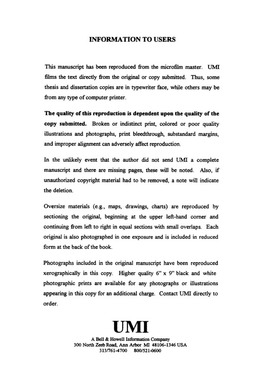| dc.contributor.advisor | Marek, Edmund, | en_US |
| dc.contributor.author | Williams, Karen Ann. | en_US |
| dc.date.accessioned | 2013-08-16T12:29:57Z | |
| dc.date.available | 2013-08-16T12:29:57Z | |
| dc.date.issued | 1998 | en_US |
| dc.identifier.uri | https://hdl.handle.net/11244/5597 | |
| dc.description.abstract | This research suggested that Piaget and Ausubel used different terminology to describe learning yet these theories are similar. Further research is needed to validate this premise and validate the blending of the two theories. | en_US |
| dc.description.abstract | Students from each treatment increased their meaningful understanding. However, neither group altered their learning orientation. The results of meaningful understanding as measured by conceptual questions, problem solving, and mental models were mixed. Differences were attributed to the weaknesses and strengths of each treatment. | en_US |
| dc.description.abstract | This research also examined four variables (treatment, reasoning ability, learning orientation, and prior knowledge) to find which best predicted students' overall meaningful understanding of physics concepts. None of these variables were significant predictors at the.05 level. However, when the same variables were used to predict students' specific understanding (i.e. concept, problem solving, or mental model understanding), the results were mixed. For forces and density/Archimedes Principle, prior knowledge and reasoning ability significantly predicted students' conceptual understanding. For heat, however, reasoning ability was the only significant predictor of concept understanding. Reasoning ability and treatment were significant predictors of students' problem solving for heat and forces. For density/Archimedes Principle, treatment was the only significant predictor of students' problem solving. None of the variables were significant predictors of mental model understanding. | en_US |
| dc.description.abstract | One section of college students (N = 25) enrolled in an algebra-based physics course was selected for a Piagetian-based learning cycle (LC) treatment while a second section (N = 25) studied in an Ausubelian-based meaningful verbal reception learning treatment (MVRL). This study examined the students' overall (concept + problem solving + mental model) meaningful understanding of force, density/Archimedes Principle, and heat. Also examined were students' meaningful understanding as measured by conceptual questions, problems, and mental models. In addition, students' learning orientations were examined. There were no significant posttest differences between the LC and MVRL groups for students' meaningful understanding or learning orientation. Piagetian and Ausubelian theories explain meaningful understanding for each treatment. | en_US |
| dc.format.extent | x, 215 leaves : | en_US |
| dc.subject | Education, Sciences. | en_US |
| dc.subject | Piaget, Jean, 1896-1980 | en_US |
| dc.subject | Physics Study and teaching, Higher. | en_US |
| dc.subject | Education, Curriculum and Instruction. | en_US |
| dc.subject | Ausubel, David Paul. | en_US |
| dc.subject | Learning, Psychology of. | en_US |
| dc.title | An investigation of meaningful understanding and effectiveness of the implementation of Piagetian and Ausubelian theories in physics instruction. | en_US |
| dc.type | Thesis | en_US |
| dc.thesis.degree | Ph.D. | en_US |
| dc.thesis.degreeDiscipline | Department of Instructional Leadership and Academic Curriculum | en_US |
| dc.note | Adviser: Edmund Marek. | en_US |
| dc.note | Source: Dissertation Abstracts International, Volume: 59-01, Section: A, page: 0077. | en_US |
| ou.identifier | (UMI)AAI9822813 | en_US |
| ou.group | Jeannine Rainbolt College of Education::Department of Instructional Leadership and Academic Curriculum | |
